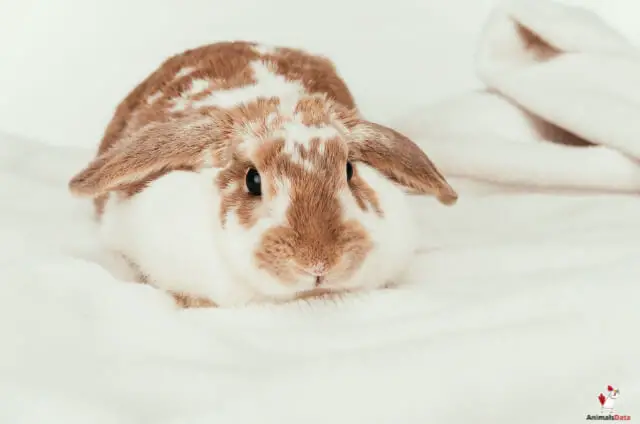If you don’t know what pistachios are, well, they are part of the cashew family and are very tasty. Despite their sweetness and multiple nutritional benefits, rabbits should not eat them. They are a little saturated with nutrients that are likely to overwhelm the rabbit’s system.
Rabbits And Nuts
In the wild, rabbits stick to a vegetarian or a herbivore diet. This implies that they don’t get access to high-fat, high-starch, or high-sugar foods like fruits and nuts. Because of evolution, a rabbit’s digestive system is tailored to digest low-energy and high-fiber foods like hay and grass. Actually, the rabbit part called the cecum specially deals with the breaking down of cellulose fiber.
If you feed too many nuts (like pistachios) to a rabbit, you will likely create an imbalance in the cecum. As a result, the poop that the rabbit produces will start caking onto the bunny’s behind. The mushy poop (also called cecotropes) triggers a condition called cecal dysbiosis, a health concern that can lead to more complications.
In And Around Nuts
For you to wrap your head around the issue of nuts being unhealthy, you should know about their nutritional content. The table below gives the nutritional information of some popular nuts to help you understand the magnitude of this issue:
| Nutrients In Grams/One Ounce Of Each Nut | Pistachio | Almond | Hazelnut | Cashew | Pecan | Brazil |
| Fiber | 3 | 4 | 3 | 1 | 3 | 2 |
| Proteins | 6 | 6 | 4 | 5 | 3 | 4 |
| Calories | 160 | 164 | 179 | 158 | 197 | 187 |
| Fats | 13 | 14 | 17 | 12 | 20 | 18 |
| Carbs | 8 | 6 | 5 | 9 | 4 | 4 |
A large part of a rabbit’s diet should be hay – fresh, excellent hay. This is because the grass is low in fats, calories, and carbs but high in fiber. To put this to perspective, one ounce of almonds has around 164 calories, but that of hay grass has about 56 calories. That is one great energy gap.
Because of its high-fiber content, hay has more satisfaction to give to a rabbit. If rabbits were supposed to meet their fiber needs from nuts, they would have to each so much of it. In the end, the nuts would lead to acute and chronic obesity issues.
And obesity is not good news. The IJO (the International Journal of Obesity) has it that for rabbits, a diet with lots of fat can lead to the dysfunction of the large arteries. This means that bunnies have a high risk of developing cardiovascular complications.
So, rabbits do not need nuts – they need fresh blades of hay every day since they have the required fiber and sufficient minerals and vitamins. If you need to supplement the bunny’s diet, you should look away from the nuts and get some leafy greens and pellets.
What Happens If My Rabbit Eats Too Many Pistachios?
You are looking at a rabbit that will develop GI problems like a tummy ache and strange fecal matter. If the issues go on for more than half a day, you should get the rabbit to a vet for medical attention.
The pistachios and other nuts have minerals and vitamins that can cause a lot of harm to rabbits if consumed at high levels. Here are some bullets to put this to perspective:
1. If the nuts in question have high folic acids, your rabbit’s CNS (central nervous system) will likely be affected.
2. Too much vitamin A can bring problems in the rabbit’s joint areas.
In many nuts and other plant-based foods, there is a component called oxalate, which is an anti-nutrient. It is a toxin that occurs naturally and causes skin and mouth itchiness together with urinary tract impairment.
What Happens To The Rabbit’s Guts When It Eats Nuts?
The rabbit’s gut needs bacterial balance; that is, the good and the harmful bacteria need to be on the same level. When you introduce a high-sugar good like nuts, the harmful bacteria proliferate, feeds on the sugar, and dish out toxins that can threaten the life of the bunny.
What Goes On After A Rabbit Is Done Eating Nuts?
Some small pistachios, almonds, or peanuts won’t cause any harm. However, if the rabbit has too many nuts, it could develop digestive issues that may need a vet’s attention. If you know much about rabbits, you know that getting an exotic vet is as tricky as paying for them.
Giving nuts to a rabbit is both toxic and non-beneficial. Since nuts do not have much to offer, you should keep them away from the bunnies.
Always have your rabbit’s needs in mind. Fiber is the most crucial thing in a rabbit’s life, not only for nutrition but also for activating the digestive tract. Once you decide to switch to nuts, be prepared to deal with stomach issues and bloating.
When in the rabbit’s system, carbs are more of a hindrance than a help. For example, if the carbs are in excess, they may trigger constipation, gut bacteria overgrowth, and gastrointestinal stasis.
Let me put that to perspective. Yeast is always part of a healthy rabbit. If you feed the yeast with starch and too much sugar, it will grow too much. The result will be soft feces from the rabbit. If the yeast is in excess, the rabbit may develop diarrhea or worse – Clostridium, a bacterium, will release iota-toxin, leading to the rabbit’s death.
The rabbit’s cecum and stomach need adequate fiber to empty sufficiently. If that’s not the case and everything is all starchy, there will be an accumulation of fecal matter and a disruption of the gut’s fauna.
Final Words
If you decide to give a rabbit too little fiber and too much fat and sugar, you may trigger a halt in the digestive tract.
If you accidentally fed any nuts to your rabbits, you should monitor them for symptoms of gastrointestinal discomfort. You should go to a rabbit vet as soon as you notice watery or discolored poop or if the bunny refuses to eat.
Before you get to the vet, you should take steps of your own. Since your rabbit will be experiencing digestive issues, you should give it nothing other than hay and water. These two elements will ensure that the bunny’s tract is moving smoothly. Read here to know more about a rabbit’s dietary needs.

I’m Christopher Benjamin, a dedicated Animal Nutritionist at Ethos Veterinary Health with a Bachelor of Science in Animal Science from Michigan State University. My lifelong passion for animals led me to establish AnimalsData.Com. Here, I share expert advice, educational resources, and inspiring stories to empower fellow pet lovers worldwide. Join our community as we celebrate the beauty and diversity of our beloved animal companions!
